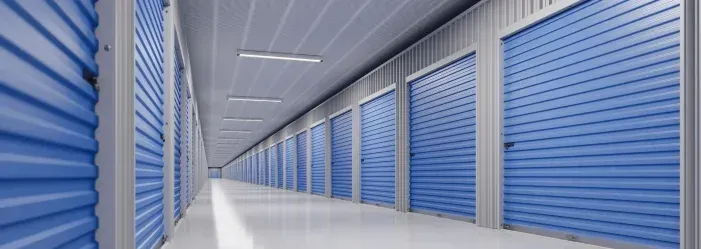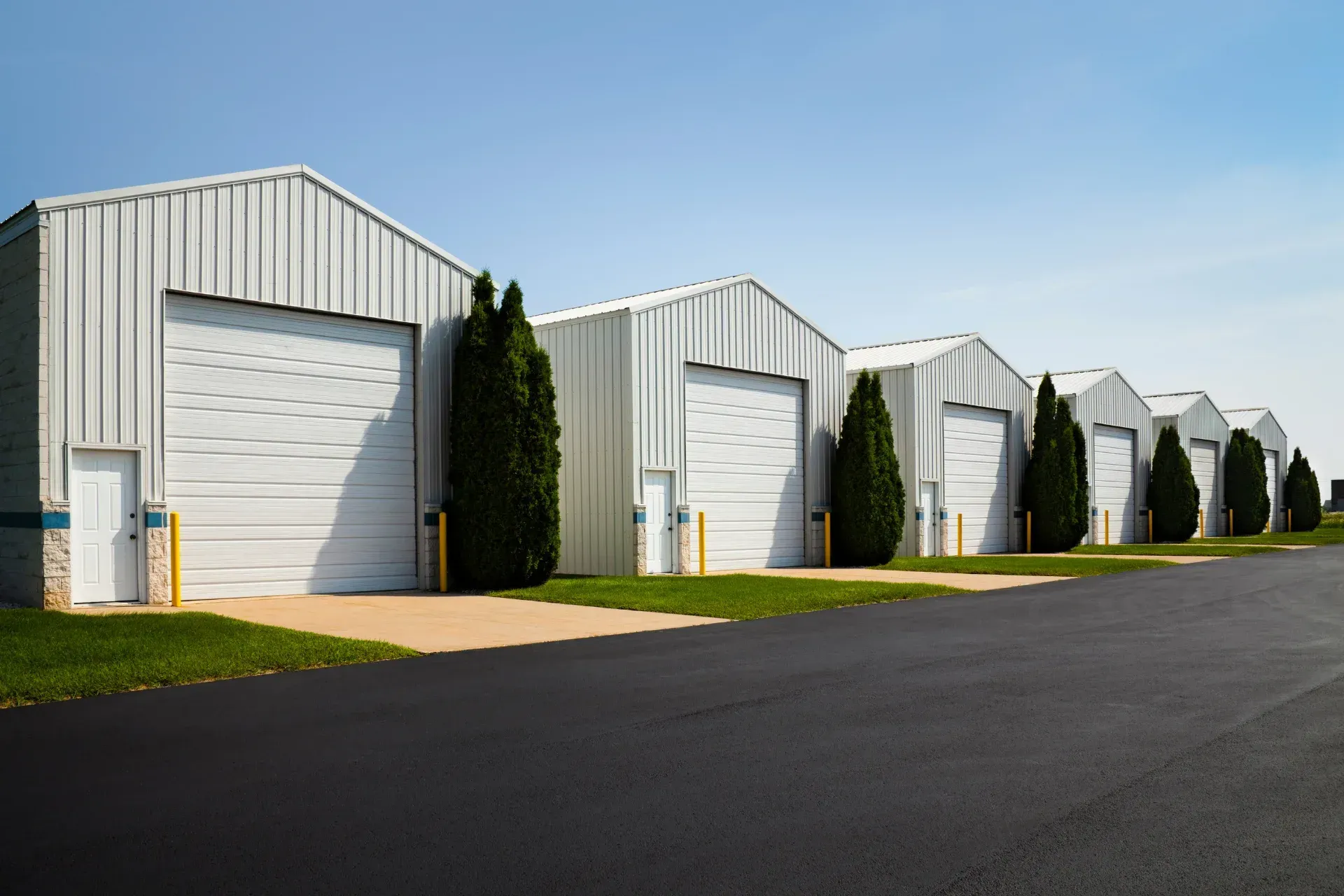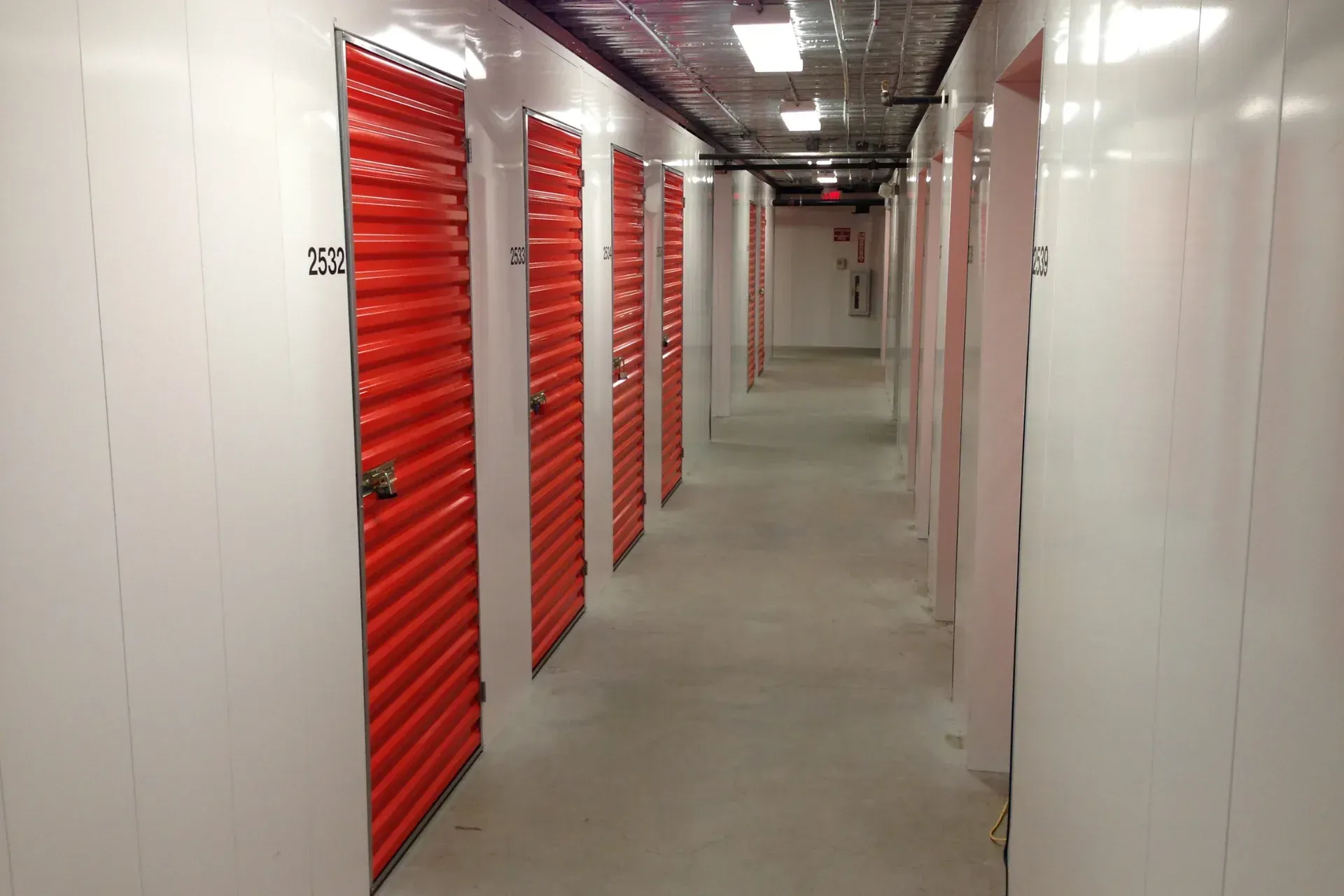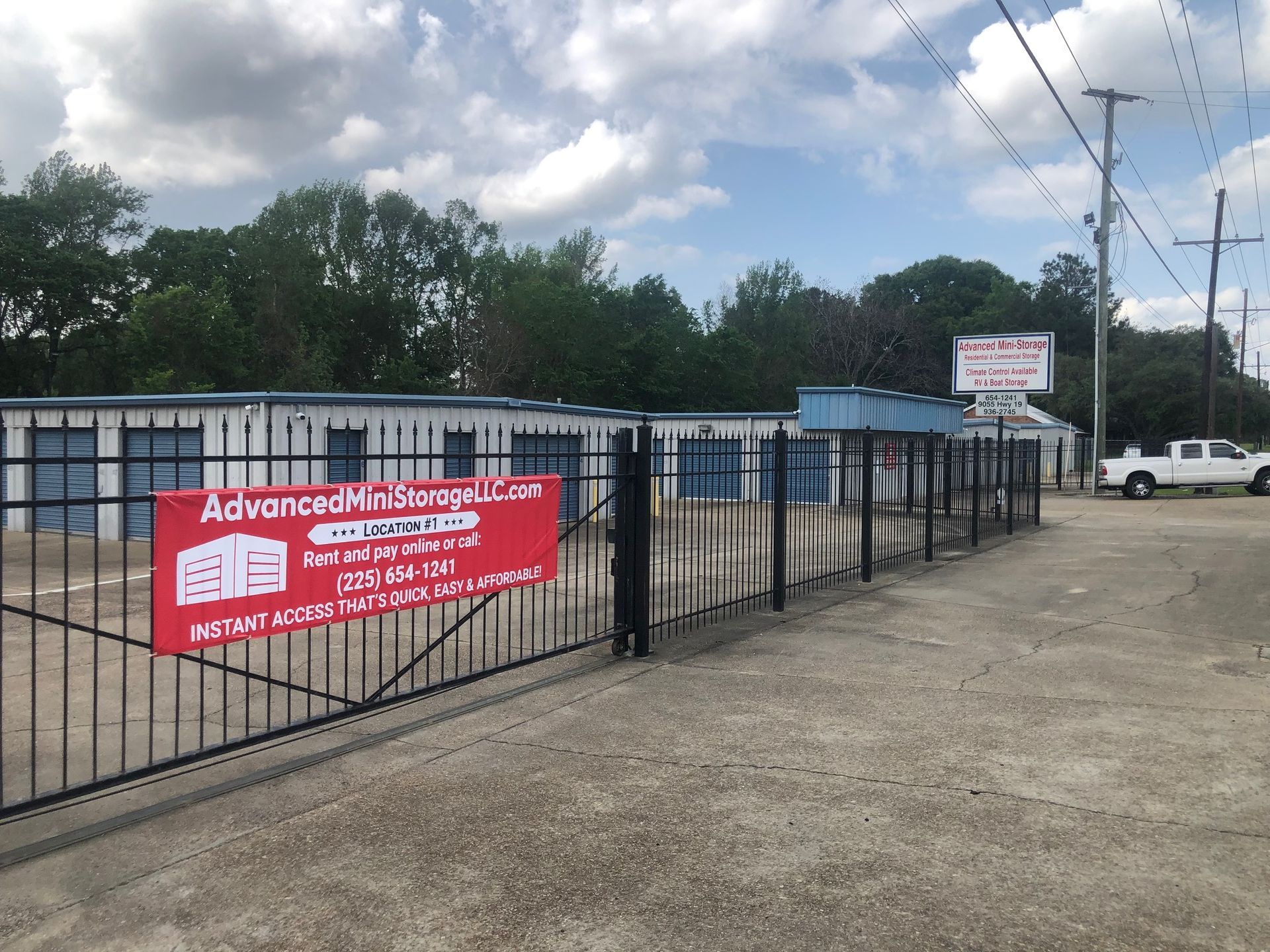Advanced Mini Storage Blog
Understanding Climate-Controlled Storage: Is It Worth the Investment?

When storing valuable or sensitive items, protecting them from environmental changes is essential. Extreme temperatures and humidity can cause damage to certain items over time, making standard storage units insufficient in some cases. This is where climate-controlled storage comes in, offering a regulated environment that can help preserve items' quality and longevity. Understanding what climate-controlled storage entails and how it works is essential to determine if it’s worth the investment for your belongings.
What is Climate-Controlled Storage?
Climate-controlled storage units maintain consistent temperature and humidity levels year-round, regardless of external weather conditions. This type of storage is ideal for items sensitive to fluctuating environmental factors, such as electronics, wood furniture, documents, and collectibles. Unlike standard storage, climate-controlled units use advanced systems to keep both temperature and humidity within optimal ranges.
Defining "Climate Control" in Storage
Climate control in storage refers to using HVAC systems and specialized insulation to regulate and stabilize the conditions within a storage unit. Typically, climate-controlled units keep temperatures between 55-80°F and humidity levels between 30-50%. This range prevents damage from mold, mildew, warping, and corrosion, which can occur in uncontrolled environments. Climate control differs from temperature control, which may only regulate temperature without addressing humidity—a critical factor for item preservation.
How Climate-Controlled Storage Works
A climate-controlled storage facility is equipped with heating, ventilation, air conditioning (HVAC) systems, and dehumidifiers to maintain stable conditions. Sensors constantly monitor the unit's temperature and humidity, automatically adjusting the climate as needed to protect stored items. The buildings housing these units are often designed with advanced insulation and air circulation systems to enhance climate control efficiency, providing a consistent and protective environment for stored belongings.
Key Features of Climate-Controlled Storage
Climate-controlled storage units are designed to maintain a stable environment to protect sensitive items from weather-related damage. Here’s a closer look at the primary features that make climate-controlled storage an excellent choice for preserving belongings:
Temperature Regulation
Temperature fluctuations can be harmful to various items, especially those sensitive to extreme heat or cold. Climate-controlled units maintain a steady temperature, usually between 55-80°F, regardless of outside weather. This consistent temperature range prevents issues like warping, cracking, and deterioration, which are common in items such as wood furniture, electronics, and delicate fabrics when exposed to fluctuating conditions.
Humidity Control
In addition to temperature, managing humidity is essential for item preservation. Climate-controlled units often keep humidity levels between 30-50%, preventing excess moisture from damaging items like paper, electronics, and artwork. High humidity can cause mold and mildew growth, while too little moisture can lead to cracking and brittleness. The regulated humidity in these units provides an optimal balance to keep belongings in good condition over time.
Air Circulation
Proper air circulation helps avoid stagnant air, which can lead to musty odors, mold, and moisture buildup. Climate-controlled units have built-in ventilation systems that circulate air consistently, reducing the likelihood of mildew and ensuring a fresher environment. This feature benefits items like fabrics, leather, and paper, which require airflow to stay in optimal condition and avoid damage.
Who Needs Climate-Controlled Storage?
Climate-controlled storage can benefit anyone with items sensitive to temperature and humidity changes. Here are some groups that particularly benefit from these storage units:
- Homeowners
For homeowners looking to store furniture, seasonal clothing, family heirlooms, or electronics, climate-controlled storage is an ideal option. Items such as wood furniture, artwork, photographs, and leather goods are especially vulnerable to extreme temperatures and humidity. Climate control provides added peace of mind, ensuring these belongings remain in excellent condition for years to come.
- Small Business Owners
Small business owners often need to store inventory, records, or specialized equipment. Items like important documents, electronics, and merchandise are better protected in a climate-controlled environment, as fluctuating temperatures and moisture can lead to damage, mold, or data loss. Climate-controlled storage allows business owners to safeguard their assets without risking costly replacements.
- Collectors and Hobbyists
Collectors of items such as stamps, coins, comic books, wine, and musical instruments require stable environments to preserve their collections' value and quality. Climate-controlled storage minimizes the risk of deterioration due to heat, moisture, and air quality, making it ideal for preserving these sensitive collections over time. For hobbyists who invest in valuable or delicate items, climate-controlled storage provides a reliable solution to maintain their passion projects in pristine condition.
Types of Items That Benefit from Climate-Controlled Storage
Climate-controlled storage is especially beneficial for items sensitive to temperature changes, humidity, and poor air circulation. Here are some key types of items that are best protected in a climate-controlled environment:
- Electronics and Appliances
Electronics like computers, televisions, and appliances can suffer damage from extreme temperatures and humidity. High humidity can cause corrosion, while fluctuating temperatures may lead to condensation and short circuits. Climate-controlled storage helps prevent these issues, ensuring that electronics remain functional and free from damage over time.
- Wooden Furniture and Antiques
Wood is particularly sensitive to changes in humidity and temperature, which can cause it to warp, crack, or swell. Antique wooden furniture and other vintage pieces are often irreplaceable, making protection critical. Climate-controlled units provide stable conditions to preserve these items' quality and structure, minimizing the risks of cracking and discoloration.
- Books and Documents
Books, papers, and important documents are vulnerable to mold, mildew, and deterioration when exposed to humidity. These items can also yellow and become brittle over time if not kept in a controlled environment. Climate-controlled storage helps maintain stable humidity and temperature levels, preserving the paper's quality and legibility for the long term.
- Art and Photographs
Artwork and photographs, particularly those with delicate materials or pigments, are sensitive to environmental conditions. Extreme heat or cold, as well as high humidity, can cause fading, warping, or cracking. Climate-controlled storage helps protect these valuable items by maintaining consistent conditions, reducing the risks of moisture damage and color fading.
- Musical Instruments
Musical instruments, especially those made of wood, metal, or delicate components, can be damaged by changes in temperature and humidity. Wood instruments, for example, are prone to warping and cracking, while metal components can corrode. Climate-controlled storage provides the stable environment necessary to protect these instruments, helping them retain their sound quality and physical integrity over time.
Advantages of Climate-Controlled Storage
Choosing climate-controlled storage offers numerous benefits for both individuals and businesses looking to protect their valuable items. Here are some of the key advantages:
1. Enhanced Protection Against Damage
Climate-controlled storage units maintain stable temperature and humidity levels, reducing the risk of damage from extreme conditions. This protection is essential for items like electronics, antiques, and collectibles that can deteriorate in fluctuating environments.
2. Prevention of Mold and Mildew
High humidity levels can lead to mold and mildew growth, which can ruin various items, including documents, fabrics, and wooden furniture. Climate-controlled units help keep humidity levels in check, minimizing the risk of mold and ensuring a cleaner, safer storage environment.
3. Improved Air Quality
These storage units typically include ventilation systems that promote air circulation, preventing stale air and musty odors. Better air quality is especially beneficial for items like fabrics and artwork, which can suffer from poor air conditions.
4. Long-Term Cost Savings
Investing in climate-controlled storage can save money in the long run by preventing damage to valuable items. Rather than replacing ruined belongings, you can preserve their condition and extend their lifespan, ultimately saving on replacement costs.
5. Peace of Mind
Knowing that your sensitive items are stored in a controlled environment provides peace of mind. Whether it’s family heirlooms, business inventory, or hobby collections, you can rest assured that they are protected from environmental threats.
6. Flexibility and Convenience
Many climate-controlled storage facilities offer a variety of unit sizes and rental options, allowing you to choose a solution that fits your needs. This flexibility makes it easy to access your items while keeping them secure and protected.
7. Ideal for Seasonal Storage
If you have seasonal items like winter clothing, holiday decorations, or outdoor furniture, climate-controlled storage is perfect for keeping them safe during off-seasons. This ensures that they remain in excellent condition when you need them again.
Overall, climate-controlled storage is an invaluable option for those looking to safeguard their items from environmental damage, offering numerous advantages that extend the life and value of your belongings.
Protecting Valuables from Temperature Fluctuations
Temperature fluctuations can wreak havoc on sensitive items, leading to warping, cracking, and other forms of damage. For instance, wooden furniture can swell or split, electronics can experience condensation, and artwork can fade when exposed to extreme heat or cold. Climate-controlled storage units maintain a stable temperature, usually between 55-80°F, shielding valuables from the damaging effects of external weather changes. By offering consistent conditions, these units ensure that your belongings remain in optimal shape, preserving their value and integrity over time.
How Humidity Control Prevents Mold and Mildew
Humidity control is a critical aspect of climate-controlled storage, as excessive moisture in the air can lead to the growth of mold and mildew. High humidity levels can be particularly harmful to items such as books, fabrics, and wooden furniture, causing discoloration, odor, and structural damage. By keeping humidity levels within a safe range (typically 30-50%), climate-controlled units help inhibit the conditions that allow mold and mildew to thrive. This not only protects the physical integrity of stored items but also ensures a healthier environment for accessing and handling your belongings.
The Cost Factor: Is It Worth the Investment?
When considering climate-controlled storage, one of the primary factors to evaluate is cost. Climate-controlled units generally come with a higher price tag than standard storage options due to the additional features and technology involved in maintaining a stable environment. However, the investment may be justified based on several key considerations:
1. Protection of Valuable Items
If you plan to store items that are valuable, irreplaceable, or sensitive to environmental changes—such as antiques, electronics, musical instruments, or important documents—the added expense can be well worth it. The potential costs of replacing damaged items often outweigh the monthly rental fees of a climate-controlled unit.
2. Long-Term Cost Savings
Investing in climate-controlled storage can lead to long-term savings by preventing damage that would require costly repairs or replacements. For instance, preventing mold and mildew growth on fabrics or avoiding warping in wooden furniture can save you significant amounts in the long run.
3. Peace of Mind
The assurance that your items are stored in a controlled environment can provide valuable peace of mind. Knowing that you’re protecting your belongings from potential environmental threats reduces stress and allows for easier access when you need your items.
4. Flexibility and Convenience
Many climate-controlled storage facilities offer a variety of sizes and rental terms, allowing you to choose a solution that fits your specific needs. This flexibility means you can store items for as long as necessary without worrying about conditions deteriorating.
5. Resale Value Preservation
For collectors and hobbyists, maintaining the condition of collectibles and valuable items is crucial for preserving their resale value. Climate-controlled storage helps ensure that these items remain in pristine condition, making them more appealing to potential buyers.
Comparing Standard vs. Climate-Controlled Storage
When deciding between standard and climate-controlled storage, it’s essential to understand the key differences. Standard storage units are typically unregulated environments, meaning items stored in these units are subject to temperature fluctuations and humidity changes. This can lead to potential damage for sensitive items. In contrast, climate-controlled storage maintains a consistent temperature and humidity level, providing enhanced protection for valuables like electronics, antiques, and important documents.
While standard storage may be more cost-effective for items that aren’t affected by environmental changes (like tools or outdoor furniture), climate-controlled storage is a superior choice for preserving the condition of more delicate or valuable belongings. Ultimately, the decision should be based on the types of items you need to store and their specific storage requirements.
Situations Where Climate-Controlled Storage is Essential
There are several scenarios where climate-controlled storage becomes essential:
- Storing Antiques and Collectibles: Items such as antique furniture, fine art, and collectibles are vulnerable to temperature and humidity changes, making climate-controlled storage crucial for preservation.
- Protecting Electronics: Computers, televisions, and other electronic devices can suffer damage from humidity and extreme temperatures. Climate control helps prevent corrosion and malfunction.
- Long-Term Document Storage: Important documents and files can deteriorate over time if exposed to high humidity. Climate-controlled units maintain optimal conditions for preserving paper integrity.
- Storing Seasonal Items: Items like winter clothing, holiday decorations, and summer gear can benefit from climate control to prevent damage caused by fluctuating temperatures during seasonal changes.
- Protecting Musical Instruments: Instruments made of wood and other delicate materials require stable environments to avoid warping and other damage, making climate control essential.
How to Choose a Climate-Controlled Storage Unit
When selecting a climate-controlled storage unit, consider the following factors:
- Location: Choose a facility that is conveniently located to ensure easy access to your items when needed.
- Unit Size: Assess your storage needs and select a unit that is appropriately sized for your belongings, allowing for easy organization and access.
- Climate Control Features: Inquire about the specific climate control systems used (e.g., HVAC, dehumidifiers) and check for consistent temperature and humidity monitoring.
- Security Measures: Ensure the facility has robust security features, such as surveillance cameras, gated access, and individual unit alarms, to protect your stored items.
- Reputation and Reviews: Research customer reviews and ratings for the storage facility to gauge the experiences of others and ensure a positive reputation.
How to Prepare Items for Climate-Controlled Storage
Properly preparing items for climate-controlled storage will help maximize their protection. Follow these steps:
- Clean Items Thoroughly: Ensure all items are clean and dry before storing them. Dust, dirt, and moisture can cause damage over time.
- Use Quality Packing Materials: Invest in high-quality packing supplies, including boxes, bubble wrap, and packing paper, to protect fragile items during transport and storage.
- Disassemble Larger Items: If possible, disassemble larger furniture or appliances to save space and reduce the risk of damage during storage.
- Label Boxes Clearly: Clearly label all boxes with their contents and any special handling instructions. This will make it easier to locate items when you need them.
- Avoid Storing Items Directly on the Floor: Use pallets or shelves to keep items off the ground, minimizing the risk of damage from moisture or pests.
Conclusion
Climate-controlled storage can be a smart investment for anyone looking to preserve their valuable, sensitive, or sentimental belongings. While it does come with an added cost, the benefits of protection from temperature and humidity fluctuations can outweigh the expenses for those who want peace of mind. By selecting the right facility and preparing items correctly, you can ensure your valuables stay in excellent condition.



Store Your Belongings With Confidence
All Rights Reserved | Advanced Mini Storage








